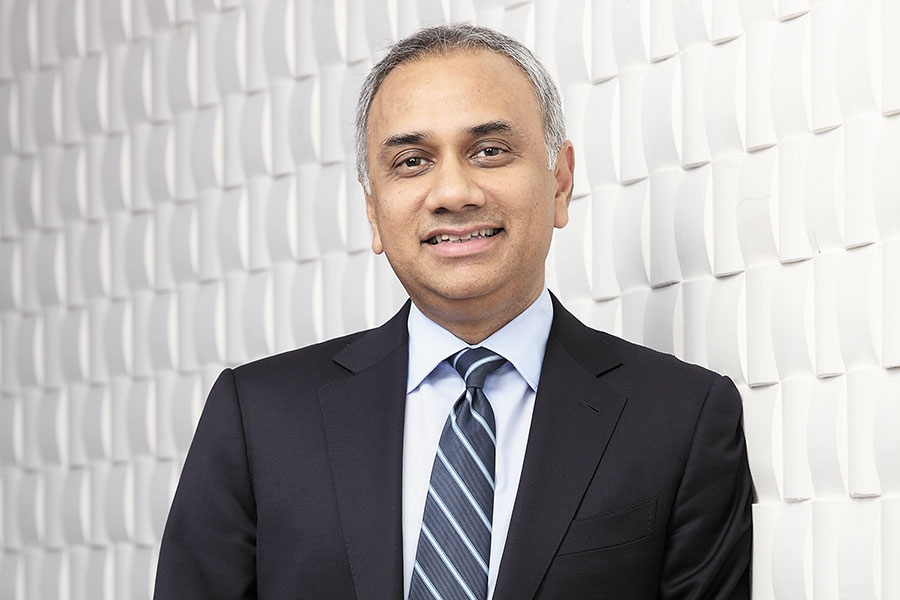
We need to be better positioned for complex digital journeys: Salil Parekh
Infosys CEO Salil Parekh on visa restrictions in the US, Infosys's whistleblower rules and continuing to remain at the forefront of technology changes
 Salil Parekh
Salil ParekhImage: Courtesy Infosys
Q. Where do you see the US economy headed?
In the US, and even in Europe, there has been a lot of focus from a policy perspective—fiscal monetary policies to support the recovery and make sure the consumer and businesses come out of this crisis as quickly as possible.
My own sense is that is going to work. We don’t know the timeline given the medical situation, but the eventual recovery and strength of those economies is much more the focus of those jurisdictions and governments. We are really positive on where that business and economy is going and we remain committed to that market.
Q. What are your views on the visa restrictions in the US, and the racial discrimination lawsuits?
On the regulations with visas and working, one of the things we’ve done over the past few years is to build out this capability to localise in many of our markets, specifically in the US. We are recruiting a large number of college graduates in India, we’ve also started to recruit a fixed number of college graduates in the US, and that’s helping us build a local capability and therefore a business model that is more resilient to these sorts of changes.
We don’t see any increase in costs from our own perspective, we’ve not seen something unusual at this stage.
On racial discrimination, we have no tolerance for this and we absolutely have no place but to say that these things are not something we support in any way. Within Infosys and I’m sure it’s true of companies outside. We have an absolute clear policy on being equal in terms of how we look at employees, irrespective of any background.
Q. What do you make of Infosys’s whistleblower rules? Is there change needed there?
The most recent one was dealt with extremely effectively with the audit committee presenting a detailed report, which was very positive in terms of saying there was nothing in the complaint. The SEC, too, gave us a letter stating what we had done was absolutely okay. And similarly, the class action in the US was voluntarily dismissed by the people who had brought it together.
The approach at Infosys allows one to surface any situation that could cause problems. I have no intention of trying to not have those mechanisms in place. Instead, my real focus is to make sure we all do things that are full of integrity and commitment.
Q. How are you changing the traditional IT outsourcing business, which still accounts for 55 percent of your revenues?
We have these services in automation and AI, which allow us to work on the core areas to make sure that we can get more and more efficiency from that. We also apply that internally to our business overall. In terms of recovery, based on what we saw in our Q1, for instance, we seem to be improving steadily from a global perspective—in the US, Europe, Apac and Australia. We see those markets and services coming more and more in a positive trajectory from an overall perspective.
Q. Where do you see Infosys in five years? What will it be capable of?
What is changing in a big way is the type of complexity our clients are looking at. We need to be much more positioned in the years to come, to be ever more joined up in these complex digital journeys that our clients are embarking on. If you look five years out, it will be about making sure that we shine through our strategy, a clear execution continues to be driven, and we continue to remain at the forefront of where the technology changes are for our clients. That’s the real value that Infosys can add at any given time with what our clients are doing.
(This story appears in the 30 November, -0001 issue of Forbes India. To visit our Archives, click here.)





